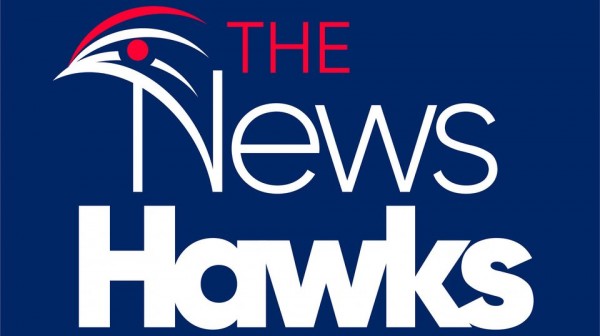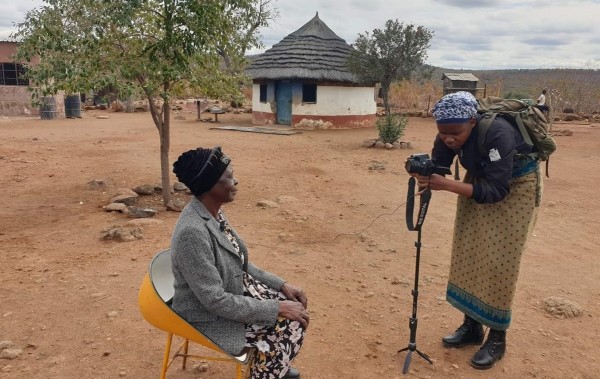Local Journalism Project Case Study: 263Chat.com
The backstory:
Launched in 2012, originally as a Twitter handle and hashtag, 263Chat is now a daily e-paper in Zimbabwe. 263Chat has over 200 WhatsApp groups that function as the primary distributor of its daily e-paper in PDF format to 50,000 Zimbabweans. The media organization also distributes news on its web page and on social media, particularly Twitter. 263Chat seeks to fill the gap in accessible, fact-based journalism in a country that is inundated with state media. 263Chat aims to reach all Zimbabweans — especially those in rural areas and with less access to the internet — through innovative news formats that allow them to get the information they need and want.
Audience:
263Chat has an audience of 50,000+ and seeks to provide a news service to a broad audience and reach people not traditionally well served by media. To do this they design news products to meet different needs and data capacity, guided as a starting point by young women in rural areas. With well over half of the Zimbabwean population being under 35 and highly literate, 263Chat aims to tap into young Zimbabweans in particular. With news available via several different formats, including PDF, WhatsApp, and Twitter, 263Chat reaches Zimbabweans everywhere, regardless of their access to data and internet.
Value proposition:
263Chat covers everything from tabloid-style news to political and economic issues of interest to Zimbabweans both in Zimbabwe and abroad. Uniquely, 263Chat has about 200 WhatsApp groups where readers can give direct feedback to 263Chat and ask about issues they want to be covered. 263Chat goes beyond traditional journalism and aims to serve a community information need. For example, they have six WhatsApp groups for farmers alone, where farmers can connect, share information, and problem-solve together.
Products and distribution:
263Chat’s main news distribution happens through their e-paper, a PDF version of their news, which is delivered via hundreds of WhatsApp groups where readers can discuss the paper and give feedback directly to 263Chat. 263Chat’s news can also be read on its website and social media channels. The organization is now developing a SMS platform for news distribution and as a new revenue stream.
The team:
263Chat has a team of 15, with 10 on the editorial team and five on the advertising client services team.
Business model:
263Chat funds its work through advertisements and documentary work, and uniquely, by offering multimedia services to other businesses and organizations such as live streaming.
Trust/misinformation:
263Chat builds trust through rigorous, timely, and fact-based reporting. Founder Nigel Mugamu said that Zimbabweans know that if 263Chat hasn’t reported it, it probably hasn’t happened yet. The e-paper helps counter disinformation because it is sent directly as a PDF from 263Chat to readers’ phones, without any intermediaries.
The future:
263Chat founder Nigel Mugamu is optimistic about the future of journalism, particularly across Africa, where populations are young and literate and industries are growing.
Ask them about:
News distribution via WhatsApp, reaching rural audiences and designing products to suit the different needs of their audience.
In their words:
“We don’t even call them the audience. We call them the community. So we talk to them every day. You know, my personal number is in every WhatsApp group that we have as 263Chat.”
“…[We] work backwards to create products that are aligned to either their value system, their purchasing decisions, the way they access the internet, the kinds of information they want to see and hear, [we] really think of the community.”
“I don’t think Africa is ready for the traditional subscription model, you know, reader revenue type thing…It’s a massive process of re-educating the market that the news isn’t free.”
“We have six WhatsApp groups for farmers, right. And we sit in those groups and farmers share information, ‘Hey, my chickens died. Here’s a picture of them. Can someone tell me what this is and how I can solve it.’ Right. That’s got nothing to do with journalism, right. But we’re serving a community need.”
“The person I’m trying to reach is a woman living in the rural areas. She may have a smartphone. She may not have the data to google. She may have a smartphone, but she may also have the WhatsApp platform…we launched what we call the e-paper…and we did it for two reasons…anyone with unlimited data can go to our website. That’s where the freshest, newest information is. And then in the middle is the e-paper, where you have limited internet access.”
“I look at the market in Zimbabwe and Africa. We’re not there yet…the disposable income is not there yet for you to pay a monthly subscription amount. So we’ve gotta be really creative about what type of products we create and how we serve the community that we serve. So it’s that balance.”
“I’m always thinking about, hang on, is this how people consume news?…What is it about Netflix that makes us subscribers? And I realized that it’s because they’ve given you a product that you can control.”
“Obviously people are cost conscious in a country like this, you know, so someone buys their bundle for the month or whatever, and they use it. And so in those closed communities, you know, I pop in, “Hey guys, I’ve got a question or we want to do this. What do you think?” And so I ask the audience.”
“So how do we get the subscriber to pay, you know, a small amount to receive the news everyday via SMS for someone who isn’t on the internet? Because we mustn’t forget about that person, you know? So that’s literally what the SMS product is about.”
“Every dollar counts, you can’t rely on one sector and you can’t rely on one revenue stream, which is also very important, which is why the push to create products is also there because you need to create a newsletter as a new product. That’s another revenue stream, you know, it might be 2 percent, but it’s still revenue.”
Source for information and views in this case study: Interview with Nigel Mugamu, founder, 263Chat.com.
This story is part of IPI’s Local Journalism Project. The publication of these case studies – part of IPI’s wider work mapping, networking and supporting quality innovative media serving local communities – is supported by the Friedrich Naumann Foundation.



